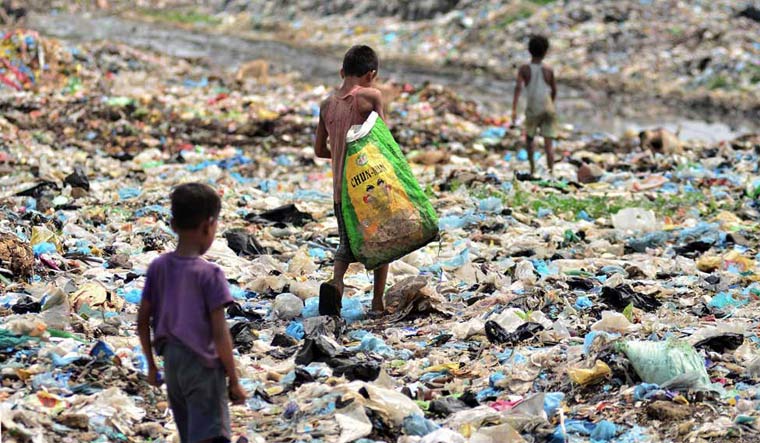For years, the faceless, socially-marginalised waste pickers have been informally doing the job of the citizenry and municipalities. But this army of waste pickers could be India's best model for waste management going forward as employing sophisticated waste collection and recycling methods are expensive, said a group of experts.
"We have seen our landfill sites go overcapacity for a long time now. The only solution seems to be in reducing the amount of waste that reaches this landfill sites. Waste pickers are crucial for doing this," said Puneet Goyal, commissioner, South Delhi Municipal Corporation, speaking at a discussion.
According to Delhi-based environment research non-profit Chintan, waste-pickers recycle almost 15-20 per cent of Delhi’s garbage, saving the municipalities at least Rs 1 crore a day. In exchange, they earn a couple of thousand rupees each per month. This explains the need to formalise their livelihood.
"There is no compensation for braving the stench, the feral dogs, and a battery of deadly germs without even the basic protection, prompting the National Human Rights Commission to label their living conditions as a violation of human rights," said Chitra Mukherjee, head of programmes, Chintan. The non-profit is working in the city to create a link between waste pickers and authorised recyclers in a bid to formalise their livelihood.
The central government's Management of Solid Waste Rules, cleared in 2016, but yet to be adopted by all states, does have requisite clauses to integrate waste pickers into the formal system of garbage collection.
Segregation is the key to garbage management. Almost half of Delhi’s waste comprises wet waste that leads to the additional problem of leeching into the soil and polluting groundwater sources with heavy metals and deadly germs.
Also Read
- ‘AAP committing fraud with women’: Congress complains to Delhi LG against 'Mahila Samman' scheme
- BJP defends Parvesh Verma for giving cash to women in Delhi: 'Not distributing liquor like Kejriwal'
- 'Delhi CM Atishi to be arrested soon in fake case': Arvind Kejriwal
- Is the legacy of Delhi's Urdu Bazaar fading?
"Delhi's waste-to-energy plants have shown us that they are not an ideal solution. Despite the high-calorific value of organic wet waste, most of our plants are defunct or broken down, given the impurities like construction waste mixed in this wet waste. It is a real problem," said Goyal.
At Okhla, the site for Delhi municipality's biggest waste-to compost plant, there are no takers for the compost that it generates from the waste, and about 25 tonnes of compost now lies dumped in the facility.
Waste-to-energy plants can save a lot of energy that they otherwise waste in treating the mixed, moist, non-combustible trash they receive.
"An ideal solution seems to be with starting segregation of wet and recyclable waste at home first so that the nature of waste being send to the landfills change," said Swati Singh Sambyal, programme manager (municipal solid waste) at Centre for Science and Environment, Delhi.
"It is not economical for us to invest millions in waste to energy plants. We must encourage a circular economy, something that India is good at. We must provide a decent livelihood to waste pickers, assure them a minimum monthly income and encourage the informal waste collectors to segregate e-waste. After all, it is them who are doing the duty of recycling," said Mukherjee.
Training waste-pickers in segregating dry from wet trash, say officials, can increase material recovery for recycling by as much as 30 per cent. Almost 95 per cent of India's huge volume of e-waste is also collected solely by the waste pickers. Any intervention to better their lives is now seen as the only solution to reduce the burden on waste dumps around the capital.


